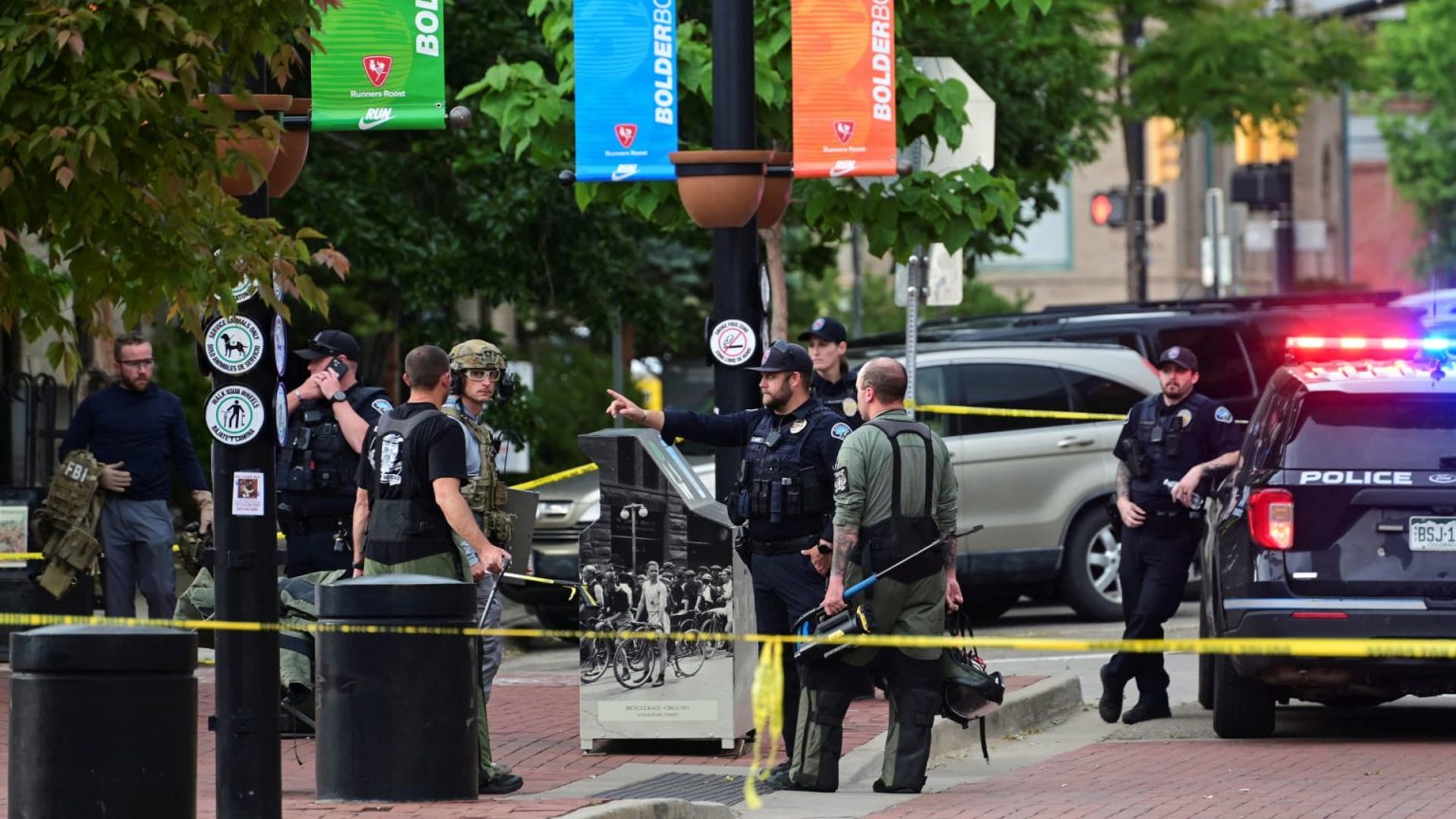A serious criminal case has unfolded in Boulder, Colorado, where a man has been charged with multiple counts of attempted murder following a brutal attack on demonstrators. Mohamed Sabry Soliman faces charges at both state and federal levels, with officials alleging that he used a makeshift flamethrower while protesting against pro-Israel demonstrators. On June 1, 2025, the violent incident left eight people hospitalized and raises critical questions regarding hate crimes and immigration laws.
| Article Subheadings |
|---|
| 1) Details of the Attack |
| 2) Charges Filed Against Soliman |
| 3) Soliman’s Alleged Motives |
| 4) Political Reactions and Statements |
| 5) Implications of the Case |
Details of the Attack
On June 1, 2025, a disturbing event unfolded during a pro-Israel demonstration in Boulder, Colorado. Witnesses reported that Mohamed Sabry Soliman, 45, launched an unprovoked attack using a homemade flamethrower. The demonstrators were gathered to advocate for the release of hostages held by Hamas when the attack occurred. According to an FBI affidavit, Soliman reportedly threw Molotov cocktails into the crowd while shouting “Free Palestine.” This alarming act left eight attendees hospitalized, suffering from severe burns and other injuries.
Law enforcement quickly apprehended Soliman at the scene, and an investigation revealed additional concerning evidence, including the recovery of 14 unlit Molotov cocktails and a backpack sprayer filled with gasoline. The quick response of the Boulder Police and federal agents prevented further potential harm and provided a swift resolution to the initial chaos.
Charges Filed Against Soliman
In the wake of the attack, Mohamed Sabry Soliman faced numerous charges in both state and federal courts. Prosecutors charged him with eight counts of attempted first-degree murder, as well as additional counts of first-degree assault and possession of incendiary devices. During his initial court appearance, prosecutors requested a steep $10 million cash bond, emphasizing the severity of the offenses.
In a separate federal case, Soliman was charged with a hate crime related to the attack, which carries serious penalties. It was revealed that he openly confessed to planning the assault for an entire year, a chilling detail that further complicates the case against him. The combination of state charges and the federal hate crime charge indicates the legal system’s serious approach to this violent act.
Soliman’s Alleged Motives
Prosecutors revealed that Mohamed Sabry Soliman had been planning the attack for a year. They claim that he specifically targeted pro-Israel demonstrators due to his extreme ideological beliefs. During a police interview, Soliman allegedly expressed his hatred toward Zionists, stating, “I wanted to kill all Zionist people and wished they were all dead.” His radical views and the premeditated nature of the attack raise serious questions regarding domestic terrorism and the underlying motivations behind such violent actions.
Additionally, the authorities discovered materials from Soliman’s vehicle that included paperwork with words related to Israel, Palestine, and U.S. aid, suggesting a further ideological pretext for his actions. Law enforcement officials assert that his actions were fueled not only by personal beliefs but also by a larger political narrative that has intensified tensions surrounding the Israel-Palestine conflict.
Political Reactions and Statements
Political leaders have condemned the violent attack and called for justice. Notably, a social media post from former President Donald Trump criticized the incident, attributing the attack to current immigration policies. He stated, “Yesterday’s horrific attack in Boulder, Colorado, WILL NOT BE TOLERATED in the United States of America,” emphasizing the need for stricter border controls and a tough stance on terrorism.
Trump’s remarks reflect broader concerns within political circles about immigration laws, particularly regarding individuals who may enter the country illegally. Soliman was reportedly in the U.S. on an expired work permit, prompting discussions about the implications of asylum and immigration regulations in preventing similarly dangerous individuals from entering the country.
Implications of the Case
The Boulder incident has raised numerous questions about hate crimes and the responsibilities of law enforcement. As the case unfolds, it presents an opportunity to critically assess how ideology influences criminal behavior, especially in terms of targeting specific groups based on race, religion, or nationality. The significance of mental health support and community dialogues will also gain attention as a means to prevent future incidents.
Moreover, the ramifications of Soliman’s case extend into broader societal discussions about domestic terrorism and hate crimes. As awareness of anti-Semitic violence grows, communities may face the pressing necessity to devise new strategies for promoting tolerance and understanding.
| No. | Key Points |
|---|---|
| 1 | Mohamed Sabry Soliman faces multiple charges, including attempted murder and hate crimes. |
| 2 | The attack occurred on June 1, 2025, during a pro-Israel demonstration. |
| 3 | Soliman allegedly confessed to planning the attack for over a year. |
| 4 | Political reactions highlight concerns about immigration policies and domestic terrorism. |
| 5 | The case raises important discussions regarding hate crimes and community safety. |
Summary
The violent attack in Boulder, Colorado, reveals significant concerns about hate crimes and ideological motivations behind acts of violence. As Mohamed Sabry Soliman faces serious charges, the implications reach far beyond the courtroom, sparking critical dialogues on immigration reform, community safety, and the necessity for enhanced dialogue against everyday hate. This case serves as a litmus test for how society confronts growing extremism and its impact on public safety.
Frequently Asked Questions
Question: What charges is Mohamed Sabry Soliman facing?
Soliman is charged with multiple counts of attempted murder, hate crimes, and possession of incendiary devices, among other state and federal allegations.
Question: What was the motive behind Soliman’s attack?
He allegedly targeted pro-Israel demonstrators due to his extreme ideological views and stated hatred of Zionists.
Question: How has the political community reacted to the attack?
Political figures, including former President Donald Trump, condemned the attack, linking it to concerns over immigration policy and the need for stricter border controls.


